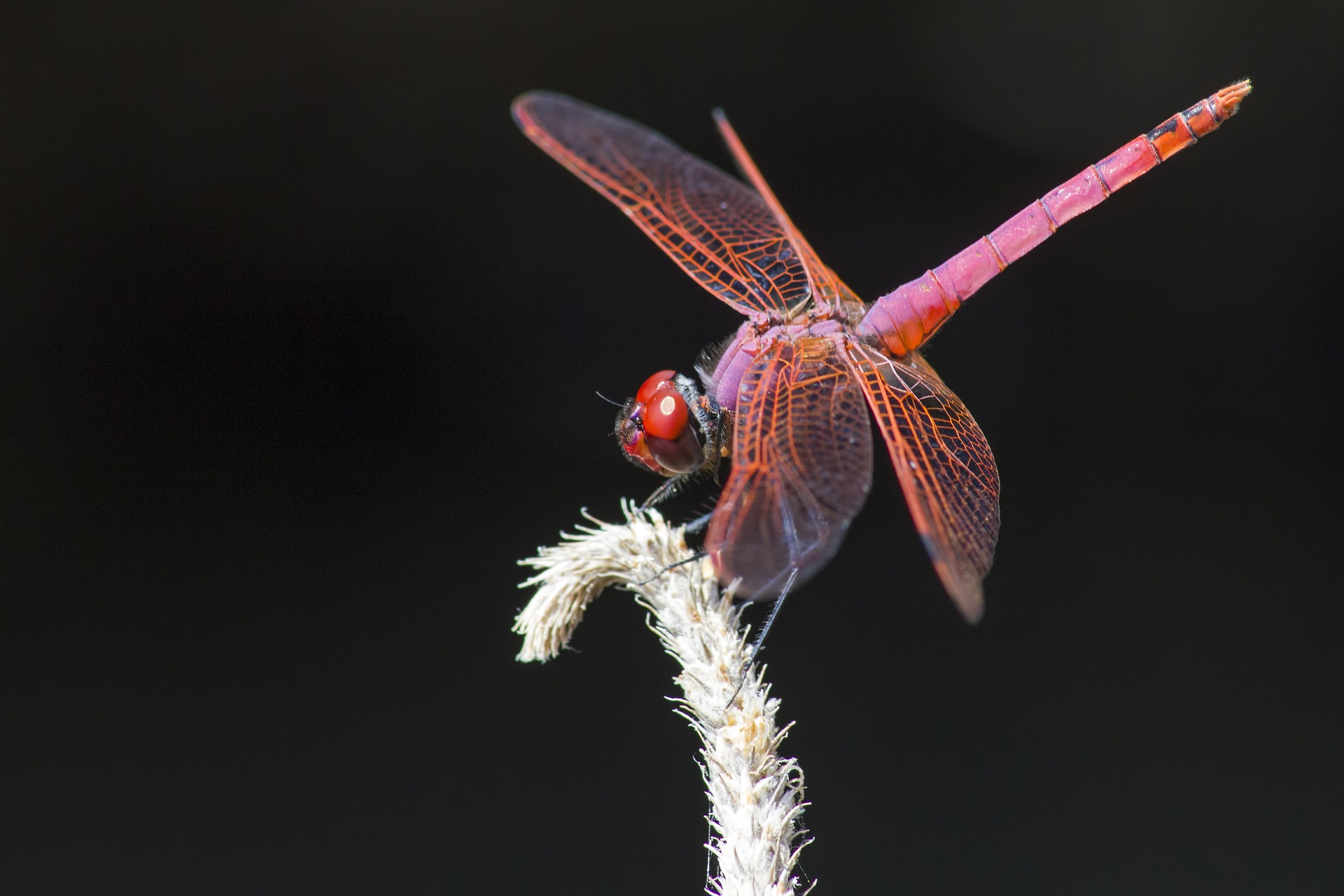The Violet Dropwing (Trithemis annulata) is a striking species of dragonfly belonging to the family Libellulidae. Here’s a detailed description:
- Appearance: The Violet Dropwing is a medium to large-sized dragonfly with a length ranging from 45 to 50 millimeters. It has a slender body and broad, transparent wings. The male has a violet-blue or purplish hue on its abdomen, which gives the species its name. The female, however, typically lacks this coloration and tends to have a more subdued appearance, with a brownish or yellowish abdomen.
- Habitat: These dragonflies are commonly found in a variety of freshwater habitats, including ponds, lakes, slow-moving rivers, and marshes. They prefer areas with dense vegetation along the water’s edge, where they can perch and hunt for prey.
- Range: The Violet Dropwing is native to parts of Africa, the Middle East, and southern Europe. It has a relatively wide distribution within its range, although its presence may be more localized in some areas.
- Behavior: Violet Dropwings are active fliers, often seen darting around their habitat or perching on vegetation near the water’s edge. They are skilled hunters, preying on small insects such as flies, mosquitoes, and other flying insects. Males are territorial and will defend their territory from intruding males.
- Reproduction: Like other dragonflies, the Violet Dropwing undergoes a complex life cycle that includes egg-laying in water, followed by larval development and emergence as adults. Mating typically occurs near water bodies, where females lay their eggs in aquatic vegetation or directly in the water.
- Conservation: While the Violet Dropwing is not considered globally threatened, it may face localized threats due to habitat loss, pollution, and changes in land use. Conservation efforts aimed at preserving freshwater habitats and maintaining water quality can benefit not only the Violet Dropwing but also other aquatic species.
The Violet Dropwing is appreciated by enthusiasts and researchers for its beauty, behavior, and ecological importance as a predator in freshwater ecosystems. Understanding its habitat requirements and conservation needs is essential for ensuring its long-term survival.
Visited 78 times, 29 visit(s) today
Views: 128
Subscribe to the newsletter:
